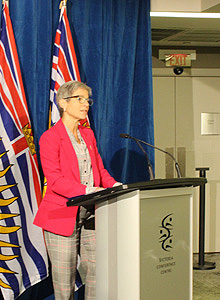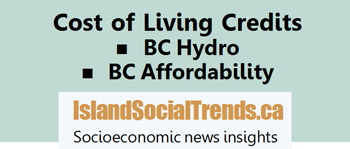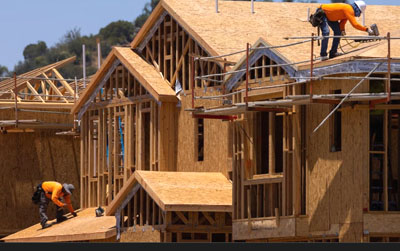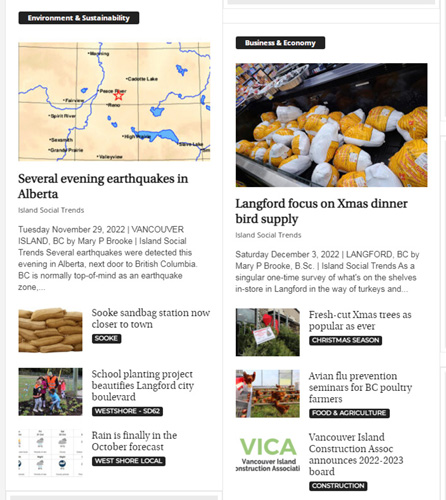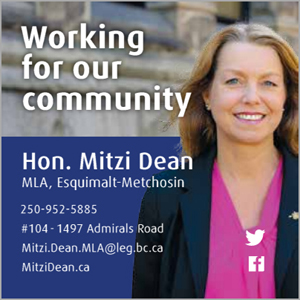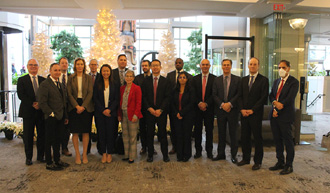
Tuesday December 6, 2022 | VICTORIA, BC [Updated December 7, 2022]
Editorial analysis by Mary P Brooke, Editor | Island Social Trends
NEW BC NDP CABINET – being announced by Premier Eby on December 7, 2022 – link to come
Economists flew in from across the country to address BC Finance Minister Selina Robinson for a full day in Victoria.
On top of a weekend of preliminary discussions, the day of formal presentations was held on Monday December 5 at the Victoria Conference Centre.
Numerous government staffers took notes. Island Social Trends was there as media.
The timing of this week’s meetings of the BC Economic Forecast Council and the ESG (Environmental, Social, and Governance) Advisory Council was the elephant in the room. The meetings (based on a process over the last few years led by Finance Minister Robinson) would have been arranged months ago.
Now under new BC Premier David Eby there could be shifts in cabinet direction, as he appoints his new cabinet tomorrow at Government House.
Nonetheless, Robinson’s full day with economists and advisors will have gathered a significant amount of information and insights, as well as being an opportunity for key players (like major banks) to have their say.
Last week and this week:
Last week Minister Robinson told media that BC would be standing firm to putting people first. Yesterday she retained that viewpoint of the NDP government, saying: “We’ll use the resources we have to address the issues that matter most to people, including housing, health care and building a sustainable economy that works for everyone.”
She added: “No matter what is on the horizon and no matter what the numbers show, this government will continue to be here to support people.”
BC currently has a substantial surplus ($5.7 billion), mostly due to increases earlier this year in both personal and corporate income tax revenues. Since the summer, BC has rolled out approximately $2 billion in affordability measures (including through school districts, the BC Affordability Fund last month, and the upcoming BC Hydro credit).
Economic outlooks:
Economists rarely fully agree on trends, or degree of impact of a range of economic factors.
However, there was pretty much consensus regarding the indisputable economic impacts of the pandemic, global supply chain issues, increasing energy prices, the challenges of transition to a green economy, and the war in Ukraine. That was, overall, the ‘elephant in the room’.
Somehow there was a sense of both acceptance of the surmountable impacts of current circumstances as well as a sense of urgency. But there was no complacency — everyone seemed attuned to the need for strategic change and responsible adaptation.
Market housing and rentals:
But one factor was mentioned across the board and that was housing. Which was tied to cost of living and employment challenges, underpinned by the complexities that face municipalities and other levels of government as to producing housing supply.
Last year BC saw 100,000 more people move to this province, with another 80,000 expected to have arrived by 2022 year-end. This puts intense pressure on housing supply, in addition to the natural flow of housing use (for various stages of life and community) which demands a range of housing types. The cost of materials (driven ever-higher by wage and transportation costs) and the timeline to build housing (including zoning and permit delays) are significant factors.
The rental market is another component of the housing market. There was talk of somehow guiding developers to shift to purpose-built rental, given that the long-term cost of living impacts in BC will make it tough for more people to get into the main real estate (investment) housing market.
Rental housing also supports people in transition between jobs and communities. People are being increasingly forced into the rental market due to the high cost of home ownership. Supply shortage of all types of attainable housing (including rentals) was noted as the current and mid-term situation.
Risk vs uncertainty:
Some new high-level ideology was presented, such as stepping out the standard GDP analysis, and looking at how BC needs to consider the fuller range of dynamics that impact the province’s decision-making, by considering a shift from risk analysis to managing uncertainty:
- risk (which can be assessed using available data), and
- uncertainty (leadership in changing times that is responsive based on synthesis of larger factors without necessarily having a full body of data).
Immigration targets and capitalizing on human skill sets was mentioned, including the context of shaping what is taught in post-secondary (both universities and colleges). Perhaps shortening the study period for certain disciplines or trade qualifications was suggested as one way to get more workers into the economy.
The impact of interest rate hikes was described as having a long lag-time. Pretty much all the contributors to the discussion noted 2023 as a challenging year, with most economic impacts anticipated to stabilize in late 2024 or in 2025.
Who was there:
The presenters in the room — both morning and afternoon — represented a wealth of background and experience in a range of sectors that together offered much food for thought for Finance Minister Robinson, as she readies the process for BC Budget 2023 preparation.
The BC Economic Forecast Council met in the morning for three hours. In the afternoon, the ESG Advisory Council met for two hours.
There for a range of reasons — mostly obviously to have input if not influence on the BC economy in the coming year — all these key players in Canada’s economic dynamic seemed keen for the opportunity and got into some fluid debate in answering some of the Minister’s questions after all the formal presentations.
Attending in the room were a few NDP MLAs including Bowinn Ma (who has been Minister of State for Infrastructure and sits on the Treasury Board) and Josie Osborne (Minister of Land, Water and Resource Stewardship). BC Liberal finance critic Peter Milobar attended for the full day, as did BC Green MLA Adam Olsen.
Minister Robinson commented a few times how it was a more effective experience to be meeting in person compared to the previous two years via Zoom.
BC Economic Forecast Council:
The BC Economic Forecast Council (EFC) met in the morning for three hours, starting with a presentation by ministry staff summarizing BC Economic Forecast Council survey results.
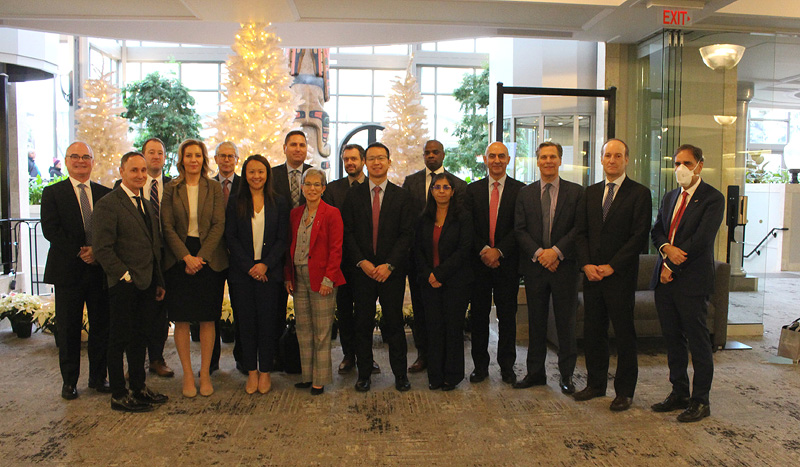
In the room were the people who contributed their insights and forecasts to the survey, who spoke in this order: Pedro Antunes (Conference Board of Canada), Jimmy Jean (Desjardins), Avery Shenfeld (CIBC), Derek Burleton (TD), Douglas Porter (Bank of Montreal), Aaron Stokes (Stokes Economics), Craig Wright (RBC), Stéfane Marion (National Bank), Ken Peacock (Business Council of BC), Sébastien Lavoie (Laurentian Bank Securities), Bryan Yu (Central 1 Credit Union), and Brendon Ogmundson (BC Real Estate Association).
Scotiabank rep Jean-François Perrault did not attend in person but had contributed to the survey. Perrault attended last year’s online session, as did Jim Stanford (Canadian Centre for Policy Alternatives) who was not on this year’s list of participants.
Minister Robinson said the last few years have seen incredible hardship in BC with multiple-generation-defining challenges, and that she sees BC laying a foundation for a strong sustainable economy.
BC & national economic factors:
She wanted to hear from economic experts about these factors and influences:
- BC economy: inflation and monetary policy impacts, recession risks, labour market dynamics and outlook, housing market and affordability, government policies to stimulate investment, as well as opportunities and challenges regarding ESG (environmental, social and governance).
- Canadian and international economies: immigration, moderating global economic growth and recession risks, outlook for the US economy, the Canadian dollars, interest rates and key commodity prices.
From the survey done ahead of the Monday session, BC’s medium-term issues were itemized as:
- Climate change and clean energy transition
- Housing affordability and supply
- Immigration
- Capital investment and productivity
- Indigenous partnerships
- Natural resource development
- Trade tensions, geopolitical risks and uncertainty
- Global supply chains
Recession debate:
Robinson said Budget 2023 would be impacted by rising interest rates, a looming recession, and supply chain challenges — much of which is essentially unpredictable.
There was no consensus on whether an official recession is coming up in 2023, but that discussion did rely heavily on the standard economic definition of recession as opposed to looking at overall impacts on social and community well-being and resilience (such as a slowdown in spending and investment) which can become intractable for longer periods regardless of whether a GDP-defined recession is in place.
‘Back to neutral’ was seen as a possibility by 2025, once the Bank of Canada interest rate has subsided back to the predicted 2.5% after reaching a probable high of 4.5% by early next year.
More specifically, the EFC anticipates that the BC economy will have grown by 2.9% in 2022 and then will grow by just 0.4% in 2023; that’s significantly slower than their forecasts at the beginning of this year, which saw 4.2% and 2.7% respectively.
ESG (Environmental, Social, and Governance) Advisory Council:
The two-hour ESG (Environmental, Social, and Governance) Advisory Council meeting was held in the afternoon, led by Minister Robinson was attended by five presenters, who addressed the room in this order: Nancy Olewiler (public policy professor, Simon Fraser University), Thomas (Tad) Homer-Dixon (political science professor), Jennifer Coulson (BC Investment Management), Radha Curpen (lawyer and ESG Strategist), and Christine Bergeron (President and CEO, Vancity).
This is the second year that the additional set of discussions was added, toward exploring how the provincial government can continue to build a more inclusive, sustainable economy and support well-being in BC.
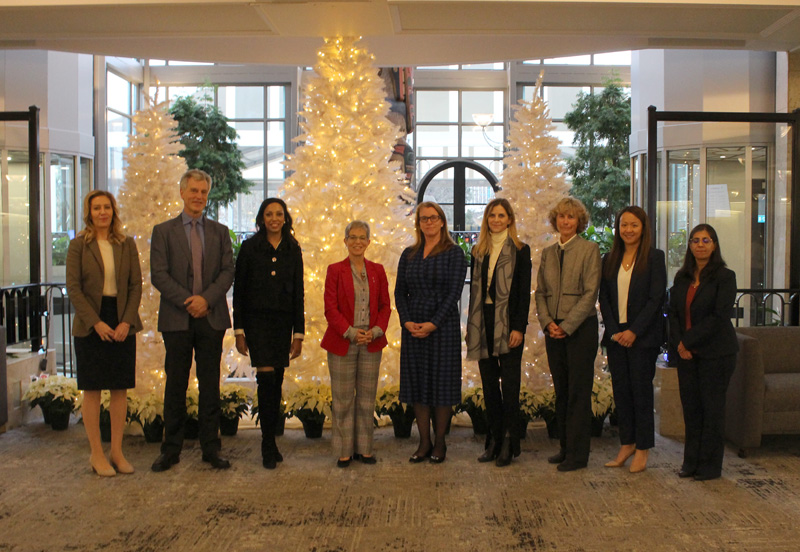
The five speakers participated in a discussion with Robinson on a range of socioeconomic factors in BC such as standard of living, poverty, inequality, Indigenous reconciliation, diversity and inclusion. The framework for discussion also included: environment and climate change, affordability, labour market dynamics, policies to ensure shared prosperity, budgeting and planning in uncertain times, ways to stimulate investment for a lower carbon economy, and opportunities for businesses to build on BC’s strong ESG profile.

Training and immigration:
Training was identified as essential, as to filling gaps in the economy. Providing child care in support of the workforce was referred to by Minister Robinson as a win, i.e. now accomplished in BC. Filling gaps in the economy was not considered to be something that can be filled by immigration alone. Getting quite specific, there was a mention of the ITA (Skilled Trades BC) as presenting barriers more than help, as the apprenticeships often drain from the availability of managers and supervisors who are needed in the active workplace.
There was the suggestion that newcomers from other countries be targeted toward the trades, as a way to help support the infrastructure delays that result from a shortage of skilled construction workers, but also to invest in British Columbians more for the trades. Wages of trade workers was mentioned as a key factor to attract more workers, and the ability to get apprenticeship opportunities. There was a debate around the balance between guiding high school graduates into university vs trades training.
Resilience in BC:
Overall provincial financial resiliency was discussed, in the face of global pandemic impacts (on health-care systems, budgets, and supply chains), the war in Ukraine (injecting nuance into global trade considerations), and rising energy prices (pressuring overall cost of living in BC and across Canada).
- The importance of investing in BC minerals, forestry and other natural resources was highlighted, as part of economic resiliency within the province; things that could be produced in BC for more local resiliency would include batteries and building materials.
- Protection of agricultural land and actually using more of it for local agriculture here on Vancouver Island was noted.
===== RELATED:
Vancouver Island Construction Assoc announces 2022-2023 board (November 29, 2022)
BC lottery revenues back up after pandemic impacts, largest contributor of all crown corps (November 25, 2022)
Cost of living efforts: BC Hydro bill credit & BC Affordability Credit (November 18, 2022)
Gig worker public engagement (October 26, 2022)
ARCHIVES: POLITICS | ECONOMY | EDUCATION | VANCOUVER ISLAND
===== ABOUT ISLAND SOCIAL TRENDS:
Island Social Trends is a professional news portal at islandsocialtrends.ca .
Fully online since mid-2020, Island Social Trends emerged from the extensive groundwork of previous print publications in the west shore: MapleLine Magazine (2008-2010), Sooke Voice News (2011-2013), and West Shore Voice News (2014-2020).
Since 2008, journalist and editor Mary P Brooke has taken an analytical socioeconomic lens to the news of the Greater Victoria west shore and south Vancouver Island region, including BC provincial news, and national news impacts.
A career-long entrepreneur (including real estate, online training, retail, and publishing), Ms Brooke holds a B.Sc. in nutrition and community health education, and a certificate in Public Relations. Her career in journalism, curriculum and publishing goes back to the 1980s.



